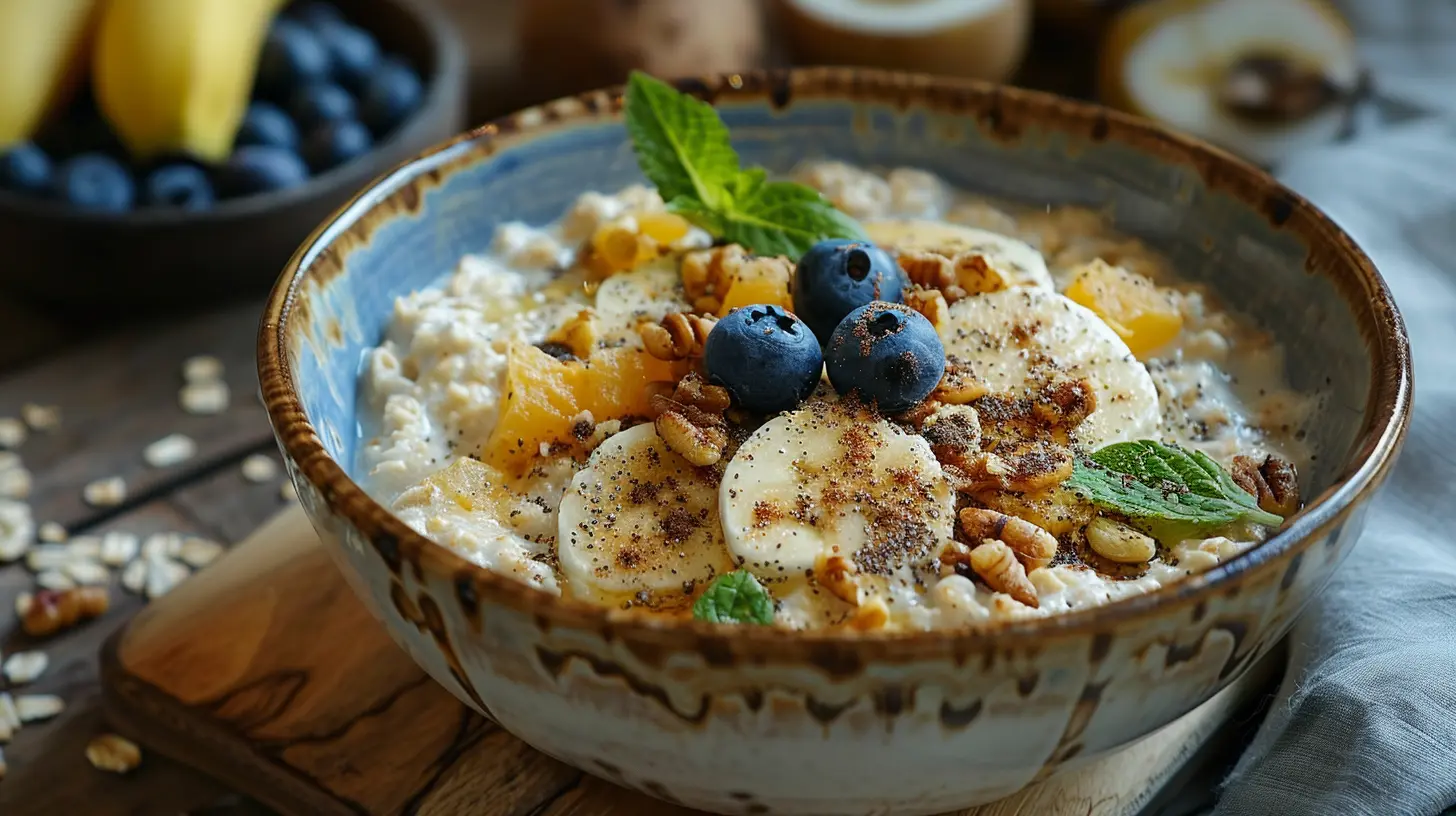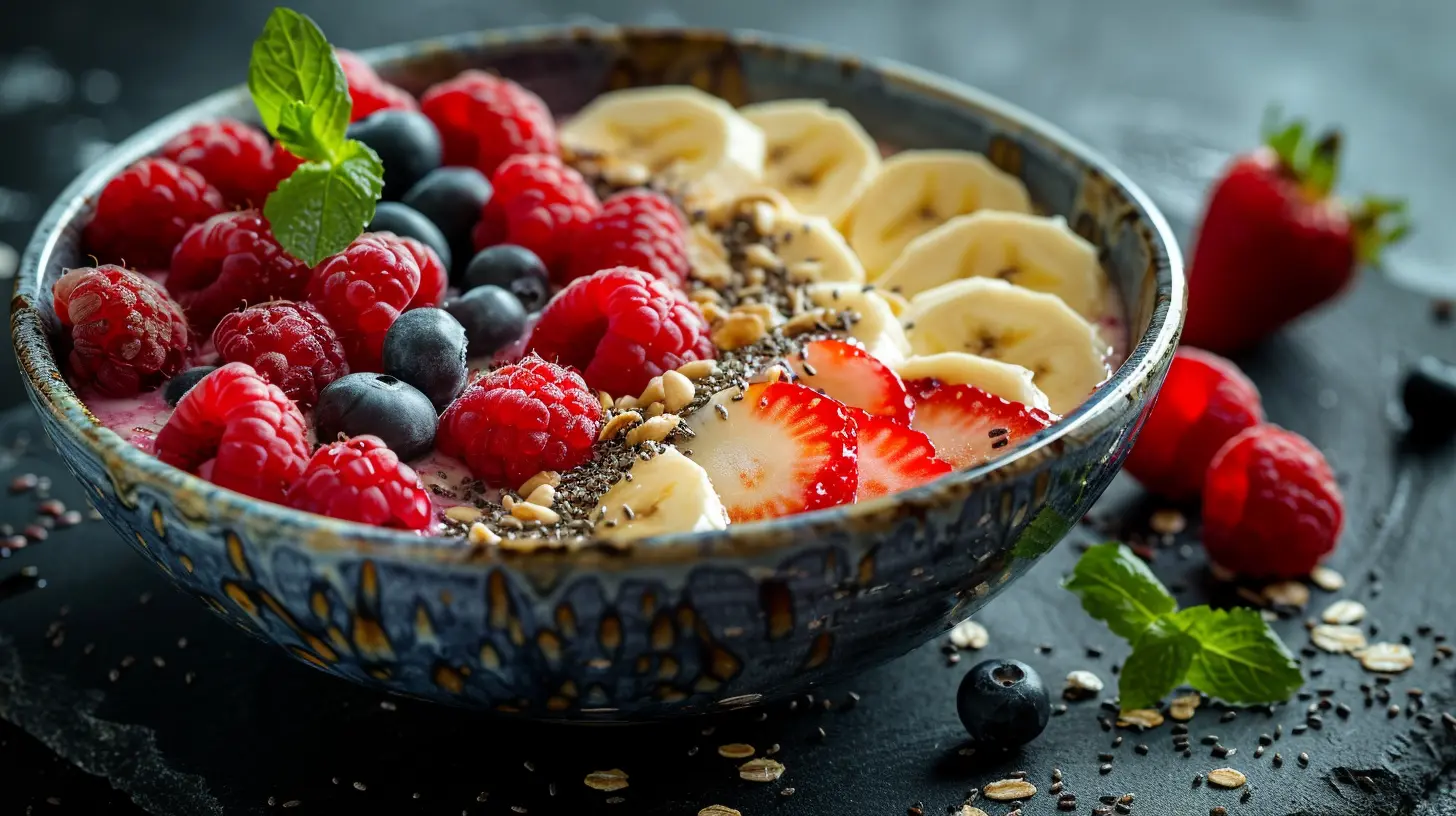The Impact of Nutrition on Your Motivation and Energy Levels
2 September 2025
We’ve all experienced those days when motivation just seems to disappear. The alarm goes off, you hit snooze a few too many times, and by the time you’re finally up, you’re dragging your feet just to get through the day. Sound familiar?
Now, have you ever stopped to think that what you eat might be playing a role in all of this? It turns out, the connection between nutrition, motivation, and energy levels is a lot stronger than you might think. In fact, the food you put into your body can either fuel your productivity or leave you feeling like a deflated balloon. So, if you’re wondering why you’re struggling to find energy or motivation, it may be time to take a closer look at your diet.
In this article, we’re going to dive deep into how nutrition impacts your motivation and energy levels. So, grab a snack (a healthy one, preferably), and let’s get started!

How Nutrition Affects Your Brain and Body
Before we get into the specifics, it’s important to understand the basic connection between nutrition, your brain, and your body. Think of your body as a finely tuned machine. Just like a car needs the right kind of fuel to run smoothly, your body needs proper nutrients to function at its best.Your brain is the control center for everything you do—motivation, focus, decision-making, and even your mood. And just like any other organ, your brain needs the right nutrients to work efficiently.
When you feed your body the right foods, you’re providing your brain with the fuel it needs to keep you energized and motivated. But when you eat poorly, it’s like putting low-grade fuel in a high-performance car—it won’t be long before things start to break down.
The Role of Glucose
One of the most important nutrients for your brain is glucose, which is a type of sugar. Your brain uses glucose as its primary energy source. Without enough of it, your brain struggles to function properly, leading to issues like brain fog, lack of concentration, and, you guessed it—low motivation.But here’s the catch: not all sources of glucose are created equal. While your brain does need glucose, it’s best to get it from healthy, complex carbohydrates like whole grains, fruits, and vegetables, rather than sugary snacks or processed foods.
Simple carbs (like candy or soda) cause a quick spike in blood sugar, followed by a rapid crash, which can leave you feeling sluggish and unmotivated. On the other hand, complex carbs provide a more stable, long-lasting source of energy, keeping you fueled and focused throughout the day.

The Link Between Nutrient Deficiencies and Low Motivation
Believe it or not, many of the nutrients you consume (or don't consume) directly affect your motivation and energy levels. If your diet lacks certain key nutrients, you might find yourself feeling tired, irritable, or even unmotivated to tackle daily tasks.Let’s break down some of the most common nutrient deficiencies that can zap your energy and motivation:
1. Iron Deficiency
Iron is crucial for the production of hemoglobin, a protein in red blood cells that carries oxygen to your tissues. Without enough iron, your body can’t produce enough healthy red blood cells, which can lead to anemia—a condition marked by fatigue, weakness, and low energy.Women, in particular, are at higher risk of iron deficiency, especially during menstruation. If you’re constantly feeling tired and unmotivated, it might be worth checking your iron levels.
Good sources of iron: Lean meats, spinach, beans, and fortified cereals.
2. Vitamin D Deficiency
Vitamin D plays a huge role in regulating mood and supporting overall brain health. Low levels of vitamin D have been linked to fatigue, low energy, and even depression. If you’re feeling unmotivated and sluggish, especially during the winter months when sunlight is scarce, a lack of vitamin D could be the culprit.Good sources of vitamin D: Sunlight, fatty fish like salmon, fortified dairy products, and supplements.
3. B-Vitamin Deficiency
B-vitamins, particularly B12 and folate, are essential for energy production and brain function. If you’re not getting enough B-vitamins, you may experience low energy, brain fog, and trouble concentrating—all of which can kill your motivation.Good sources of B-vitamins: Eggs, dairy products, leafy greens, and whole grains.
4. Magnesium Deficiency
Magnesium is involved in over 300 chemical reactions in the body, many of which are related to energy production and muscle function. Low magnesium levels can lead to fatigue, muscle cramps, and trouble sleeping—all of which can negatively impact your energy and motivation levels.Good sources of magnesium: Nuts, seeds, whole grains, and leafy green vegetables.

The Impact of Processed Foods on Energy and Motivation
We’ve all been there—reaching for a bag of chips or a candy bar when we need a quick energy boost. But here’s the harsh truth: processed foods may give you a temporary energy spike, but they do more harm than good in the long run.Processed foods are often high in refined sugars, unhealthy fats, and artificial ingredients, all of which can mess with your body’s natural energy balance. These foods cause blood sugar fluctuations, leading to energy crashes that leave you feeling worse than before.
Plus, diets high in processed foods have been linked to increased inflammation in the body. And chronic inflammation has been shown to negatively affect brain function, mood, and motivation.
So, while it might be tempting to grab that bag of chips for a quick fix, your motivation will thank you if you choose a healthier option instead.

How a Balanced Diet Can Boost Your Energy and Motivation
Now that we’ve covered the “don'ts,” let’s talk about the “dos.” What should you be eating if you want to feel energized and motivated throughout the day? The answer is simple: a balanced diet!A balanced diet is one that includes a variety of nutrient-dense foods from all food groups. This ensures that your body is getting the vitamins, minerals, and nutrients it needs to function at its best.
1. Eat Whole, Unprocessed Foods
The closer a food is to its natural state, the better it is for your energy levels and motivation. Whole foods like fruits, vegetables, whole grains, lean proteins, and healthy fats provide your body with the nutrients it needs to keep going strong.2. Prioritize Protein
Protein is essential for muscle repair and energy production. It also helps you feel full and satisfied, which can prevent overeating and energy crashes. Including a source of protein in every meal can help keep your energy levels stable throughout the day.Good sources of protein: Chicken, fish, tofu, lentils, and eggs.
3. Don’t Skimp on Healthy Fats
Healthy fats are crucial for brain health and energy production. Omega-3 fatty acids, in particular, have been shown to support cognitive function and mental clarity, which can boost your motivation and focus.Good sources of healthy fats: Avocados, nuts, seeds, and fatty fish like salmon.
4. Stay Hydrated
Water is often overlooked when it comes to energy and motivation, but staying hydrated is key to keeping your brain and body functioning properly. Even mild dehydration can lead to fatigue, irritability, and trouble concentrating.Aim to drink at least 8 glasses of water a day, and more if you’re active or live in a hot climate.
The Role of Meal Timing
It’s not just what you eat that matters—it’s also when you eat. Skipping meals or going long periods without eating can lead to blood sugar dips, which can leave you feeling sluggish and unmotivated.Eating regular, balanced meals and snacks throughout the day can help keep your blood sugar stable and prevent those dreaded energy crashes.
1. Start Your Day with a Balanced Breakfast
Skipping breakfast is a common mistake, but it’s one that can set you up for a day of low energy and poor motivation. A balanced breakfast that includes protein, healthy fats, and complex carbohydrates can jumpstart your metabolism and give you the fuel you need to power through your morning.2. Don’t Forget About Snacks
Healthy snacks can help keep your energy levels up between meals. Opt for nutrient-dense options like nuts, fruit, or yogurt to keep your brain and body fueled throughout the day.
Final Thoughts: You Are What You Eat
At the end of the day, your motivation and energy levels are deeply connected to what you put into your body. If you’re constantly feeling tired and unmotivated, it might be worth taking a closer look at your diet.By focusing on whole, nutrient-dense foods, staying hydrated, and avoiding processed junk, you can give your brain and body the fuel they need to stay energized and motivated. Remember, you are what you eat—so make sure you’re eating foods that support your goals, both mentally and physically.
all images in this post were generated using AI tools
Category:
MotivationAuthor:

Gloria McVicar
Discussion
rate this article
1 comments
Aris Patel
Great read! It’s fascinating how our diet directly influences our motivation and energy. I’ve noticed a real difference in my productivity since focusing on nutritious foods. Can’t wait to explore more tips on balancing nutrition and mental well-being!
September 24, 2025 at 2:58 AM

Gloria McVicar
Thank you! I'm glad you found it helpful. Nutrition plays a crucial role in our overall well-being—excited for you to explore more tips!


